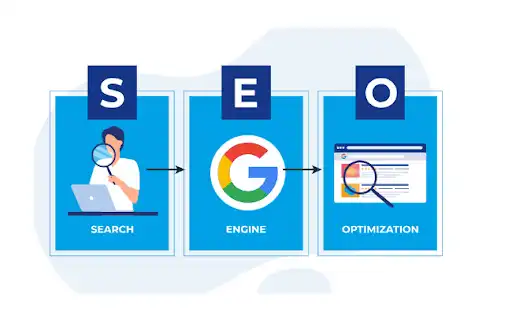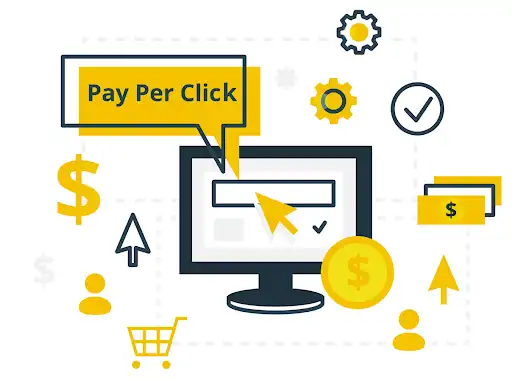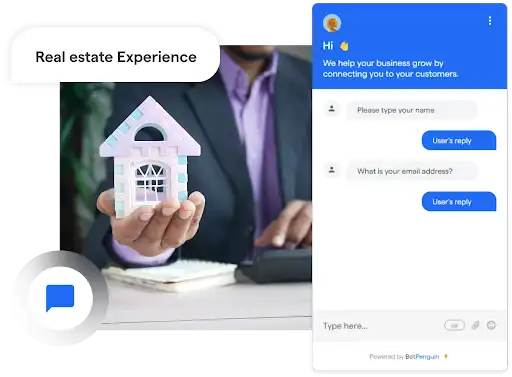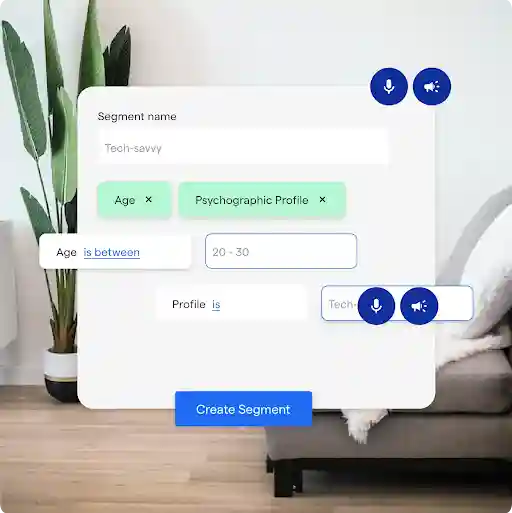Introduction
Forget billboards and newspaper ads. In the digital age, they're almost outdated. Traditional methods are becoming less effective, with 92% of buyers starting to search for their house online. This shift highlights the need for new real estate marketing strategies.
This statistic isn't just a number; it's a loud alarming signal that old-school tactics won't make it anymore. In navigating the vast sea of online real estate marketing, the puzzle pieces of strategy can seem daunting.
This guide includes 9 innovative tips for real estate marketing strategies to connect you with modern buyers. With the right approach, you're not just selling properties but crafting dreams and lifestyles.
Let's explore how to make your listings stand out online and ensure your properties are not just seen, but sought after.
Use Social Media Effectively

Social media is a powerful tool for enhancing various real estate marketing strategies. 90% of surveyed real estate agents today use Facebook and 52% use Instagram for active promotion of their property listings.
It offers great opportunities to connect with potential buyers and creatively showcase properties.
Choosing the Right Platforms for Your Audience
Different demographics prefer different platforms. Professionals might lean towards LinkedIn, while younger audiences may be more active on Instagram or Tik-Tok.
Visual platforms like Instagram are perfect for high-quality photos and videos, while Twitter is great for quick updates and links to articles.
Creating Engaging Content That Resonates

You can use professional photos and videos to highlight the best features of your listings. To engage your audience, provide informative content, such as buying tips, market trends, and home improvement ideas.
Ask questions and prompt your followers to share their thoughts to increase engagement.
Utilizing paid Advertising on Social Media
Use social media's targeting tools to reach your specific audience, from location to interests. Keep an eye on your ad performance. Keep adjusting your strategy based on what's working and what's not to maintain the best possible ROI.
You can also try different ad formats to see what resonates best with your target audience, including story ads, carousel ads, and video ads.
Optimize Your Website for SEO

A well-optimized website is crucial for attracting more traffic and generating leads in the competitive field of real estate marketing.
Basics of SEO for Real Estate Websites
A significant portion of users will access your site via mobile devices. Make sure your website is responsive and loads quickly.
You can use various real estate marketing tools to incorporate trending keywords into your content to attract local buyers and sellers. Use descriptive file names and alt tags for the images on your site, focusing on relevant keywords.
Local SEO
Local Keywords: Incorporate location-specific keywords to attract local buyers and sellers. Phrases like "homes for sale in [City]" or "best real estate agents in [City]" can drive targeted traffic.
Google My Business: Create and optimize your Google My Business profile. Ensure your business information is accurate and consistent across all online directories.
Local Backlinks: Obtain backlinks from local businesses, community websites, and local real estate directories to improve your local search ranking.
Reviews and Ratings: Encourage satisfied clients to leave positive reviews on Google and other review platforms. Positive local reviews can boost your visibility and credibility.
On-page and Off-page SEO Strategies
Optimize your content and HTML source code, including titles, headers, and meta descriptions by your target audience.
Build quality backlinks from reputable sites in the real estate industry and related fields to boost your site's authority. Using guest posting websites to showcase your properties can also be part of your real estate marketing strategies.
Importance of Keyword Research
Use a combination of short and long-tail keywords as real estate marketing tools in your strategies. This will help you grip on what your target audience searches online to find real estate properties.
More specific phrases can attract more qualified leads closer to purchasing.
Implement Email Marketing Campaigns

Incorporating email marketing in your real estate marketing strategies remains one of the most direct and personal ways to communicate with potential and current clients.
Building a Subscribers List
You can provide useful resources like buying guides, or market analysis reports as an incentive. Promote your newsletter sign-up through these channels to capture interested parties.
Crafting Compelling Email Content
Use the recipient's name and craft content based on their interests and where they are in the buyer/seller journey.
Include property listings, success stories, testimonials, and educational content to keep your audience engaged and informed.
Measuring the Success of Email Campaigns
Making all these efforts in your real estate marketing strategies is no good if you can’t measure it. Use metrics like open rates, number of inquiries, and customer visits to gauge your campaigns' effectiveness and identify improvement areas.
Tailor your communications based on subscriber behavior and demographics for higher engagement rates.
Use High-Quality Photography and Videos

Visual content can make or break a real estate listing, making professional photography and videography indispensable.
The Impact of Visual Content on Real Estate Listings
First impressions count, use high-quality, professional images to captivate potential buyers. Visual content has proven effective for 90% of marketers recognize its impact on lead generation.
Use the right lighting, angles, and staging to highlight the key features of your properties.
Tips for Taking Professional Real Estate Photos
Invest in the right equipment, you can use a professional DSLR camera, wide-angle lens, and tripod to capture the beauty of your listings.
Otherwise, consider hiring a professional. Professionals know how to showcase a property's potential through photography and video, providing an excellent return on investment.
Suggested Reading:
30 Creative Real Estate Marketing Ideas for 2024
Incorporating Video Tours and Drone Footage
Offer your customers an immersive experience, video tours and drone footage can give prospective buyers a real feel for the space and layout of a property.
You can also use a drone to showcase the surrounding area, amenities, and features of the neighborhood.
Host Virtual Tours and Open Houses

Virtual tours and open houses allow potential buyers to explore properties from anywhere, at any time, providing convenience and accessibility. This strategy is fresh and less saturated.
Advantages of Virtual Tours in Today’s Market
You can use these real estate marketing tools to reach a wider audience, virtual tours are accessible to out-of-town buyers and those who prefer to pre-screen properties online before visiting in person.
Being 24/7 available, virtual tours can be accessed at any time, broadening the potential buyer pool.
Tools and Software for Creating Virtual Tours
Select user-friendly platforms, and choose real estate marketing tools that offer intuitive interfaces for both the creator and the end user.
You may consider investing in quality equipment. You can use a good-quality camera and stabilizer to create smooth, professional-looking virtual tours.
Suggested Reading:
How to Generate Leads for Real Estate: 10 Useful Ideas
Promoting Virtual Open Houses
You can use social media to announce your virtual open houses as part of your real estate marketing strategies. This will help you get maximum attention and visibility.
Also, encourage your viewers to ask questions and interact during the live event to create a more personal and engaging experience for participants.
Foster Partnerships with Local Businesses

Building partnerships with non-competing businesses in your community can open up opportunities for referral business and co-marketing efforts.
Benefits of Local Partnerships
Local partnerships and cross-promotion are some real estate marketing tools that can boost your real estate marketing strategies.
Align with businesses that offer home buying, selling, or ownership services to reach potential clients through different channels.
Establishing your presence as an active member of the local business community can also boost your credibility and attract more business.
Finding the Right Business Partners
Identify complementary businesses and partners that offer services or products that complement the real estate buying or selling process.
Select such business partners that share a similar commitment to quality and customer service to maintain a positive brand image.
Strategies for Collaborative Marketing Efforts
Joint advertising campaigns can be a great choice for real estate marketing strategies. Collaborate on marketing efforts, such as co-sponsored local events or joint advertising in local media, to maximize visibility.
Offer incentives and commissions to partner businesses to refer your properties to their clients to mutually benefit from each other's networks.
Suggested Reading:
10 Tips for Effective Real Estate Digital Marketing
Engage with Your Community
To execute your real estate marketing strategies on a larger scale, you need to have active community engagement. It increases your conversion rates and leads to direct business opportunities through networking and exposure.
Using Community Engagement in Real Estate Marketing Strategies
Start participating in local events. Sponsoring, volunteering, or simply attending community events raises your profile among potential clients.
You can also support local causes that align with your business. Connect with local charities or initiatives to demonstrate your commitment to the community beyond just doing business there.
Hosting and Participating in Community Events
Organize educational seminars and offer free seminars on buying, selling, or investing in real estate to establish yourself as a credible authority.
Also, participating in local festivals and fairs can provide an excellent opportunity to interact with the community in a less formal setting, building rapport and visibility.
Leveraging Local Media and PR
Establish relationships with local media. Become a go-to expert for real estate matters in your area, offering insights and commentary for local news stories.
Create press-worthy events by organizing events or initiatives that are innovative enough to warrant media attention, further elevating your profile in the community.
Invest in Pay-Per-Click (PPC) Advertising

Pay-Per-Click (PPC) advertising means paying advertisers each time a user clicks your ad.
You can use it in your real estate marketing strategies for better visibility in search results, making it a valuable component for real estate marketing strategies.
Understanding PPC in the Real Estate Sector
PPC enables you to reach users who are actively searching for real estate services, increasing the likelihood of conversion.
Unlike organic SEO efforts that take time to build, PPC ads offer instant presence at the top of search results.
Crafting Effective PPC Ad Campaigns
Create ads that communicate the value you offer, with strong calls to action that encourage users to click.
Select keywords based on thorough research, focusing on terms that potential clients are likely to use when searching for real estate services.
Suggested Reading:
Finding the Perfect Chatbot: A Guide for Real Estate Agents
Monitoring and Adjusting Your PPC Strategies
You can use analytics to track how your ads are performing in terms of clicks, conversions, and ROI.
Based on these analytics, you can continuously refine your PPC strategy. You can collect performance data, test different keywords, and ad formats, and adjust target options to optimize results.
Utilize Chatbots for Real-Time Engagement

In a fast-paced market, responsiveness can be a key differentiator. Utilize a chatbot for real estate to engage with leads instantaneously, providing information and capturing data 24/7.
The Role of a Chatbot for Real Estate
A Chatbot for real estate can provide instant replies to inquiries. It can answer common questions, enhancing the customer experience. It saves you time to focus on other important aspects.
You can use a chatbot for real estate to gather contact information and qualify leads based on their preferences and behavior, streamlining your lead generation process.
Create Your First Chatbot for Real Estate Marketing Today with BotPenguin

Create your first chatbot for real estate effortlessly, with BotPenguin. BotPenguin is a free AI chatbot maker that will help you create, train, and manage your online chatbot easily. T
here are numerous reasons why you should choose BotPenguin to develop your chatbot for real estate:
Lead Generation: With BotPenguin, you can create a chatbot for real estate that automatically captures and nurtures potential clients.
Display Your Catalog: You can directly showcase property listings within the chat interface.
Send Property Images or Videos: A chatbot for real estate allows you to share visual content, such as home video tours or images, seamlessly to engage clients.
Video Call for Property View: You can impress your clients with virtual property tours with integrated video call features.
Property Visit Booking: Real estate chatbots allow clients to schedule in-person property visits conveniently using calendar integrations like Google Calendar, Simplybook, etc.
And much more. In conclusion, including chatbots in your real estate marketing strategies in the biggest competitive edge you can have in this day and age.
Conclusion
Navigating the digital landscape in real estate isn't just about showcasing properties; it's about engaging instantly and effectively with potential buyers.
Enter BotPenguin, an AI-powered chatbot for real estate. This tool doesn't just handle inquiries—it builds connections crucial to the fruition of your real estate marketing strategies.
BotPenguin ensures no lead goes unattended 24/7. Integrating such smart technology forms a crucial part of your real estate marketing strategies, enabling you to stay responsive and relevant in a market that never sleeps.
By adopting innovative solutions like BotPenguin, you set yourself apart in a competitive arena and provide a seamless, interactive experience for your clients.
Remember, in today’s fast-paced market, the right mix of real estate marketing tools and tactics isn’t just beneficial; it’s essential.
These real estate marketing strategies are your bridge to turning listings into homecomings and inquiries into sales.
Suggested Reading:
How Can Botpenguin Chatbots Help Your Real Estate Business?
Frequently Asked Questions (FAQs)
What are the best practices for real estate marketing strategies?
Leveraging real estate marketing tools, especially, social media and SEO are some best practices to incorporate in real estate marketing strategies. It's fast, wide-reaching, and can be specifically targeted towards your ideal demographic.
What are the five best real estate marketing strategies?
Real estate marketing strategies are also similar to other business marketing strategies. However, not everything that works for one business works for the other. Here are some real estate marketing tools and strategies you can implement -
SEO and content marketing.
Chatbot for real estate marketing to provide instant customer engagement.
Social media advertising.
Email marketing campaigns.
Virtual tours and video content.
How do you create excellent real estate marketing strategies?
Start with your target audience. Craft compelling content that addresses their needs. Utilize a mix of digital real estate marketing tools.
Always analyze and adapt based on performance. These small tips will help you create your ideal real estate marketing strategies.
How to get more leads by implementing real estate marketing strategies?
Focus on building a strong online presence, leverage social media networking, and engage with your community through events or sponsorships. Referrals are also gold.
What is the most popular type of real estate advertising?
Online advertising, particularly through social media platforms and real estate websites, is the most popular and effective way to reach potential buyers and sellers today.


